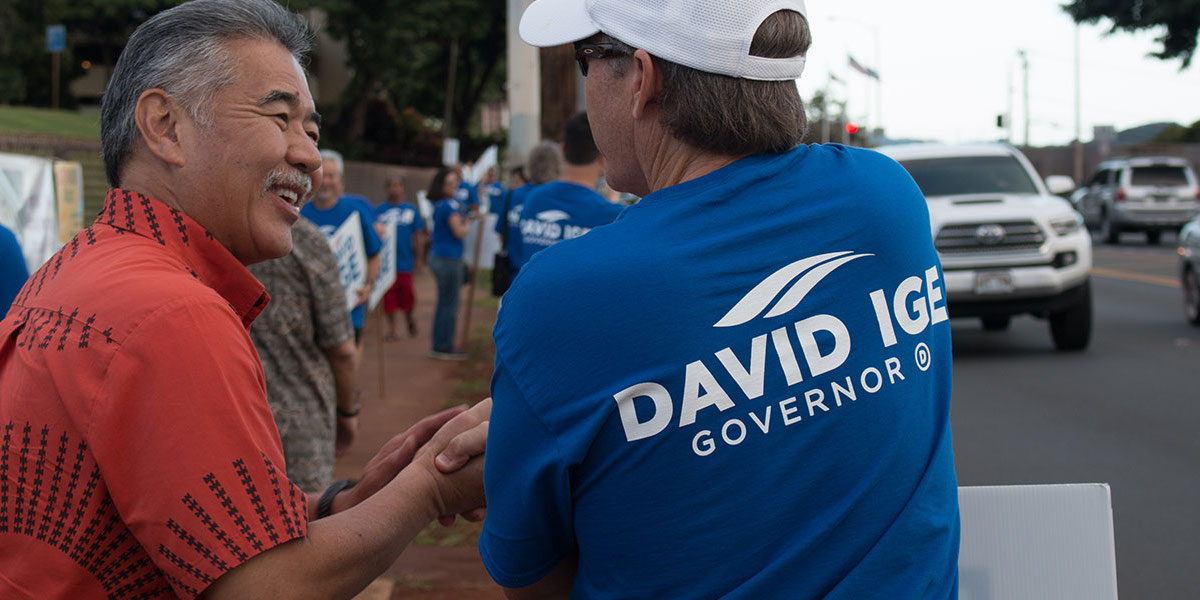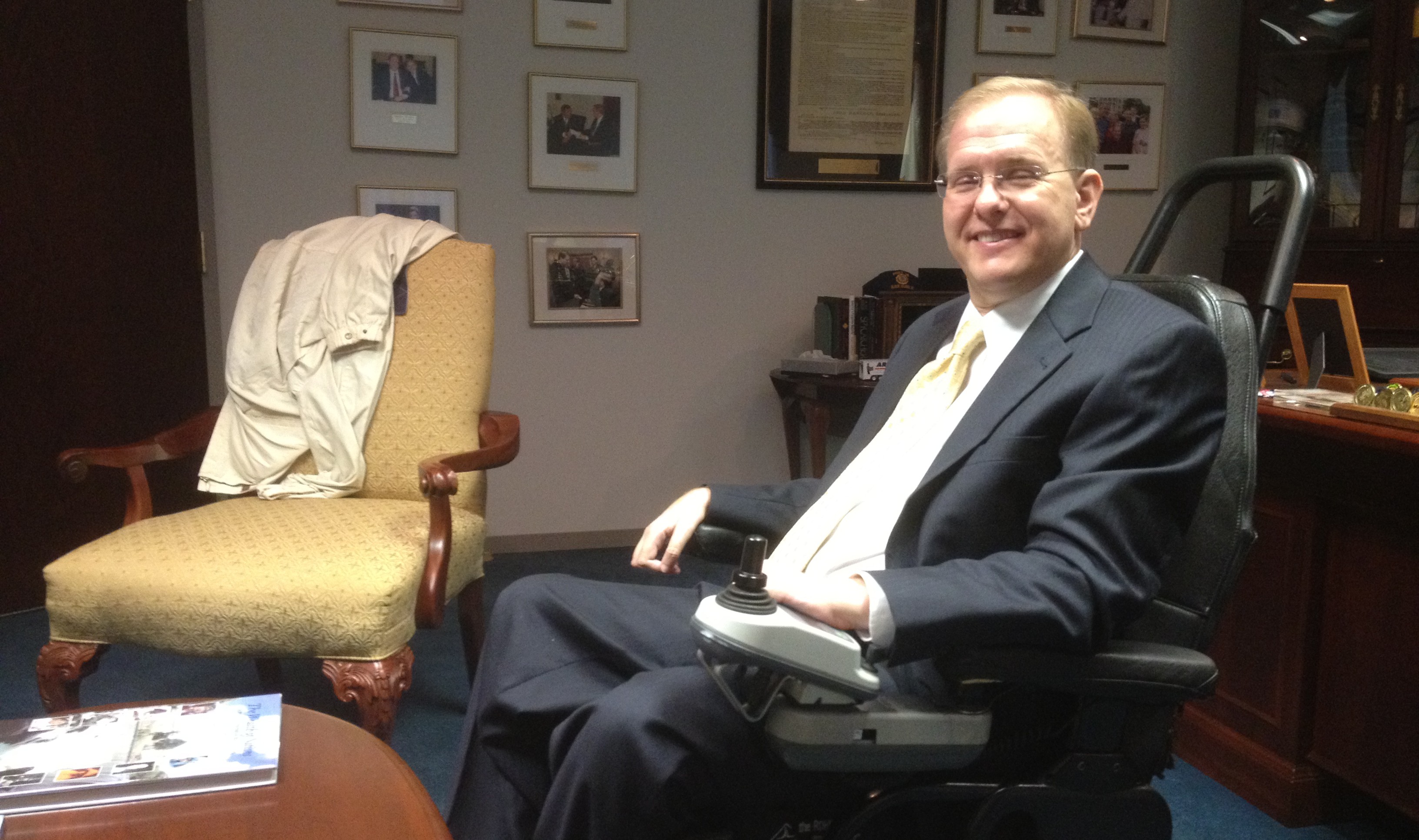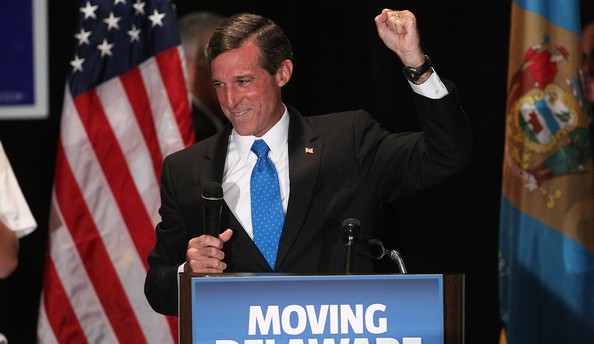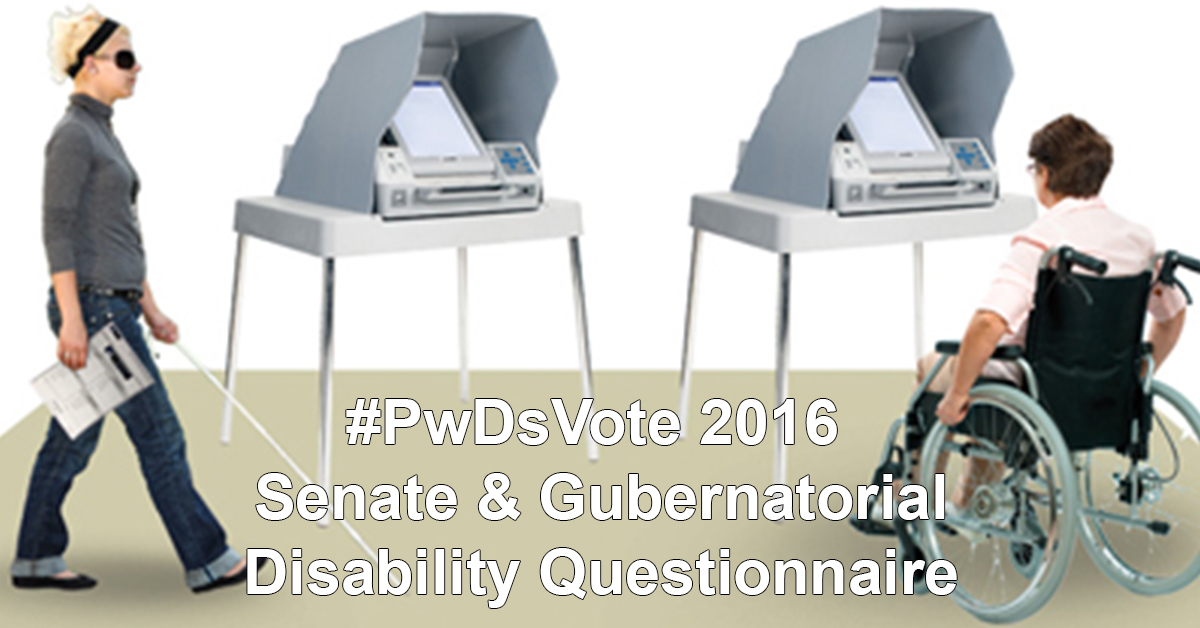 Honolulu, Hawaii, Nov. 7 – Democrat David Ige has won a second term as Hawaii’s Governor after beating Andria Tupola in this year’s election.
Honolulu, Hawaii, Nov. 7 – Democrat David Ige has won a second term as Hawaii’s Governor after beating Andria Tupola in this year’s election.
Ige responded earlier during the campaign season to a disability issues questionnaire for Senate and gubernatorial candidates put out by RespectAbility, a nonpartisan, nonprofit national organization working to end stigmas and advance opportunities for people with disabilities. Andria Tupola, Ige’s opponent, also responded to the questionnaire. It can be found at The RespectAbility Report.
In his responses, Ige highlighted his efforts as governor to provide Hawaii residents with disabilities with better employment opportunities and inclusion in the workplace. “We see employment of people with disabilities as a civil rights issue, and closing the employment gap is a key strategy that will benefit the entire community. Members of my administration are working to establish Hawaii as an Employment First state, and I am steadfastly committed to making this happen.”
More than 156,000 people with disabilities live in Hawaii. This number includes 66,031 who are working age (18 to 64). Of that population, an estimated 39.9 percent are employed, leaving 60.1 percent out of work. In comparison, 78.6 percent of working-age Hawaiians without disabilities are employed. Hawaii ranks 18th in terms of employment rate for people with disabilities in the U.S.
Ige also touched on education within his responses specifically on aiding high school students with disabilities on their way to employment or secondary education. “A core initiative is the Jobs Now Partnership (JNP) facilitated by the University of Hawaii Center on Disabilities Studies (CDS), which is working with local high schools to support students with intellectual and developmental disabilities in their pathway to employment. This pilot demonstration is a partnership with five agencies and will assist high school sophomores to seniors develop and achieve individual employment outcomes.”
Ige also issued a proclamation for Hawaii naming October 2018 as Disability Employment Awareness Month. “People with disabilities are productive and loyal, and deserve the same opportunity to earn an income and achieve independence like anyone else,” writes Gov. Ige in the proclamation. “The State of Hawai’i has a vested interest in increasing the inclusion of people living with a disability by providing access, meaningful services, and improved outcomes for all citizens at the state, county, local, and private sector levels.”
According to a recent survey, 74 percent of likely voters have a disability themselves or have a family member or a close friend with disabilities. The upcoming elections and their results will have an impact on people with disabilities, so it is important to become familiar with the candidates’ thoughts on certain issues.
“Candidates for office ignore the disability community at their peril,” said former U.S. Representative and Dallas Mayor Steve Bartlett. Bartlett, who was a primary author of the Americans With Disabilities Act of 1990, is the chairman of RespectAbility.”
Ige’s responses to the questionnaire can be found below.

















